Let us talk about Birthing Pod and sacrifices.
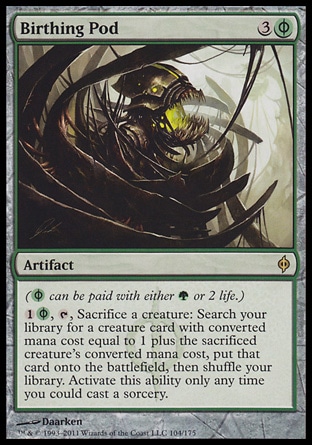
Oracle Text:
Artifact
({GP} can be paid with either {G} or 2 life.)
{1}{GP}, {T}, Sacrifice a creature: Search your library for a creature card with mana value equal to 1 plus the sacrificed creature's mana value, put that card onto the battlefield, then shuffle your library. Activate this ability only any time you could cast a sorcery.
As usual, let us start with describing the card. It is a green artifact. Oh yeah, artifacts aren't bound to be colorless! In this case, Birthing Pod's mana cost contains a green phyrexian mana symbol, therefore Birthing Pod is a green card. It is green regardless of whether you pay {3}{G} or {3}+2 life for it.
We have already talked about phyrexian mana symbols with Phyrexian Metamorph and Past in Flames. Let me remind that "Phyrexian mana" is an imaginary term. The real thing is a Phyrexian mana symbol of certain color, which may be paid either with mana of that color or with 2 life. This is not an alternative cost. You may pay 2 life even if you are casting a spell paying an alternative cost, such as Flashback.
Birthing Pod has an activated ability which is signaled to us by the colon in the text. This ability has an activation limit. We have discussed an ability with the same limitation when inspecting Illusionary Mask. In Magic slang it is said that they are activated "at sorcery speed". This produces a lot of mishaps related to effects that allow casting sorceries "at instant speed", like Leyline of Anticipation. Thing is, "sorcery speed" and "instant speed" is not really connected to the moment when you can play a sorcery spell or an instant spell, but rather when you can normally play them. It defines conditions at which you may perform an action, more specifically:
- “at sorcery speed” means “in your main phase when you have priority and the stack is empty”;
- “at instant speed” means “any time you have priority”.
Thus, we can activate Birthing Pod's ability only when we have priority in our main phase when the stack is empty. This means among other things that this ability cannot be activated in response to anything that uses the stack. If the cunning opponent tries to kill your creature, you cannot “sack it for Pod”, since the stack currently contains at least the killing spell or ability controlled by your opponent.
The cost of activating Birthing Pod's ability consists of {1},{G/P}, {TAP} and sacrificing a creature. I guess you already know enough about phyrexian mana symbols as well as about tap symbol which has a special meaning on creatures. Time to talk about sacrifices.
We shall forget Birthing Pod for a while and concentrate on Sacrifice.
Sacrifice, i.e. sac, sack
So, first of all, sacrifice is not an ability!
It is an action, and this action is performed only in either of the two cases:
- as (part of) a cost;
- as a result of an effect instructing or giving an option to do so.
This immediately means two things:
- sacrificing doesn't use the stack!
- sacrificing cannot be responded to!
Let us analyze these two statements. Why does sacrificing not use the stack? Because this is not an ability nor a spell, while only abilities and spells and their copies may be on the stack.
Why can sacrificing not be responded to? Because one can only respond to an object on the stack, i.e. to a spell, activated or triggered ability as a whole, and not to their part (including the sacrifice of something). More specifically:
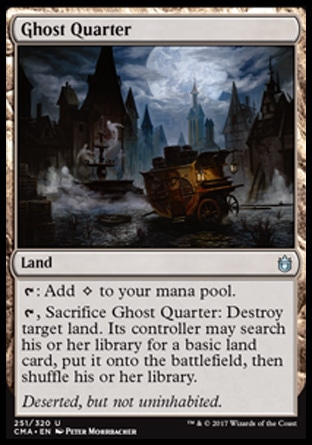
If sacrificing is part of an ability cost, like the second ability of Ghost Quarter, it is paid while the spell is being cast or an ability is being activated, and by the time you can do anything at all (this moment will arrive when you get priority), the permanent has already been sacrificed loooong ago.
If sacrificing is an instruction to be performed, such as Smallpox's effect, then again, you cannot do anything as you are in the process of resolving a spell or ability and you do not have priority at this time.
Take another look at the definition of Sacrifice: “to move a permanent you control”. It is evident that:
- you can only sacrifice a permanent (which is a card or a token on the battlefield);
- this permanent may only be sacrificed by the player in control of it.
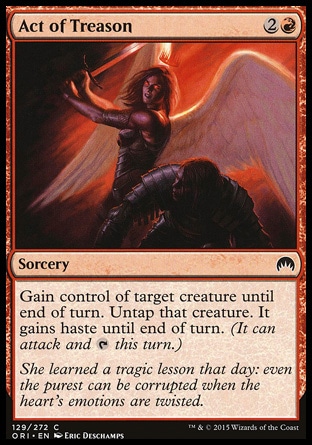
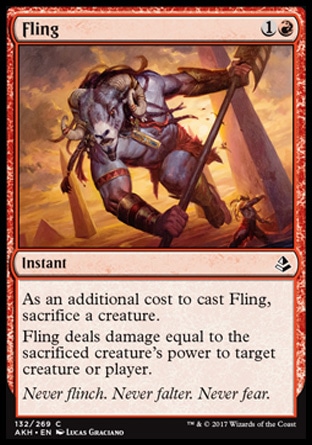
A funny example when you cannot sacrifice a permanent under another player's control.
If you “snatch” an opponent's creature equipped with a Blazing Torch, you cannot activate the ability of the creature granted to it by the Torch, since you do not control the Torch and cannot sacrifice it, thus being unable to pay the ability's activation cost.
The opponent cannot do this either since he does not control the creature, and for that reason he may not activate its abilities.
Finally, “to its owner's graveyard”. According to the rules, an object may only go to its owner's graveyard, even if it was controlled by another player before that.
Now, just in case, let me remind an important verity of Magic: the Gathering: every word matters in Magic!
Let us compare three magical words: Sacrifice, Destroy and Die.
Destroy
Destroy is described in the dictionary almost identically to sacrifice (“Move the permanent from the battlefield to its owner's graveyard”), but there is a huge point of difference in terms of the rules: “The only ways a permanent can be destroyed are as a result of an effect that uses the word ‘destroy’ or as a result of the state-based actions that check for lethal damage (see rule 704.5g) or damage from a source with deathtouch (see rule 704.5h). If a permanent is put into its owner's graveyard for any other reason, it hasn't been ‘destroyed.’” This leads to a conclusion:
To sacrifice is not to destroy!
Since sacrificing a permanent doesn't destroy it, neither regeneration nor other effects that replace destroying can be applied to sacrifice.
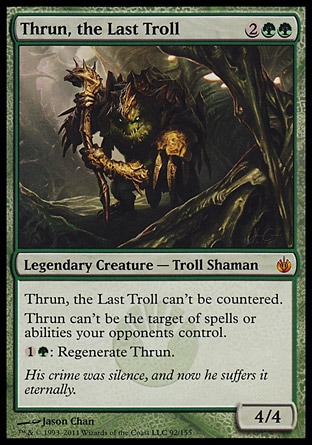
You cannot sacrifice Thrun, the Last Troll and then regenerate him.
Indestructible on an opponent's permanent is not a problem if you have ways to instruct him to sacrifice it.
Dies
Another peek into the dictionary: “A creature ‘dies’ if it is put into a graveyard from the battlefield”. Since the rules do not mention the cause of moving the creature to the graveyard, both sacrificing and destroying a creature involve dying (unless, of course, there are effects that will prevent the creature from going to the graveyard, such as Rest in Peace). You know what this means, right?
A sacrificed creature dies!
Sacrifice combines with Morbid:
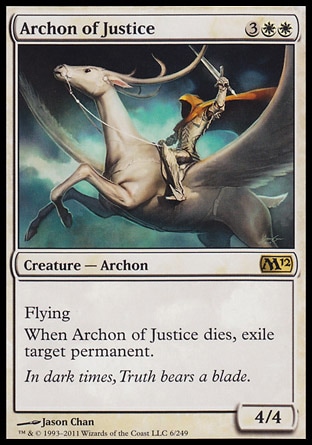
If you sacrifice Archon of Justice and it hits the grave, its ability will trigger.
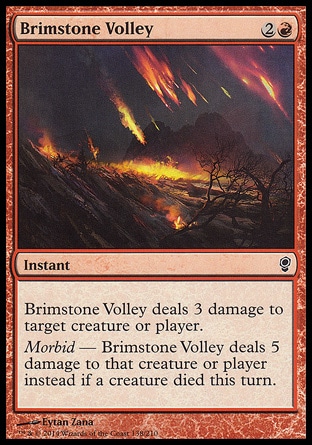
If you cast Brimstone Volley afterwards, it will deal 5 damage to target creature or player.
Here is the most commonly case of misused sacrifice:
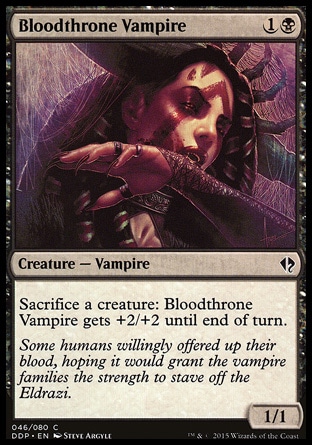
— I have two Bloodthrone Vampire. I sacrifice a creature. Do both vampires get +2/+2?
— Tell me, how exactly did you sacrifice the creature?
— An opponent has cast Cruel Edict.
— Alright. So how are the Vampires related to this? Now, if you had two Furnace Celebration, sacrificing a creature would cause abilities to trigger. With Vampires, sacrificing a creature is the cost of activation. And according to the rules, each activation only applies to one spell, ability or effect. Each vampire would need to be “fed” its own creature, and not the one that was sacrificed through Cruel Edict's effect.
117.10. Each payment of a cost applies to only one spell, ability, or effect. For example, a player can't sacrifice just one creature to activate the activated abilities of two permanents that each require sacrificing a creature as a cost. Also, the resolution of a spell or ability doesn't pay another spell or ability's cost, even if part of its effect is doing the same thing the other cost asks for.
Enough about sacrificing, I guess. Time to return to Birthing Pod and have a look at the effect of its ability: “Search your library for a creature card with mana value equal to 1 plus the sacrificed creature's mana value, put that card onto the battlefield, then shuffle your library”.
First, let us remember what we know about mana abilities. It is useful to read articles about Dark Confidant, Illusionary Mask and Fireball. It won't harm to remember that the value of {X} in the mana cost on the battlefield is equal to zero regardless of what it was on the stack.
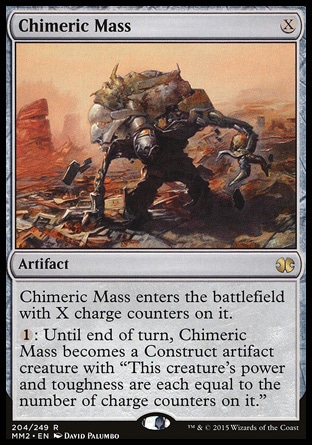
It doesn't matter how much you paid when casting Chimeric Mass, its mana value on the battlefield is zero.
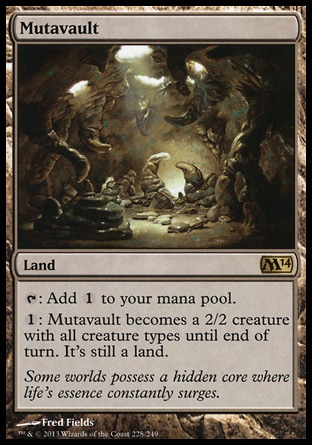
The same is true for "animated" lands.
Most of tokens, including Embalmed creatures doesn't have mana cost.
If you sacrifice either of these creatures for Birthing Pod, when the ability resolves you will search for a creature with mana value 1.
Besides that, you need to know that mana cost (which is used to determine mana value) is a copiable value. And not every token has no mana cost.
Phyrexian Metamorph as a copy of Duplicant has mana value 6, not 4.
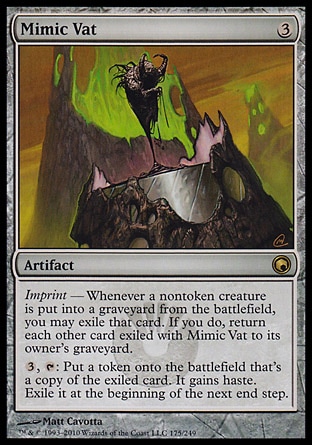
A token that appeared on the battlefield as a result of resolving Mimic Vat's ability copies the exiled card, it will have its mana cost.
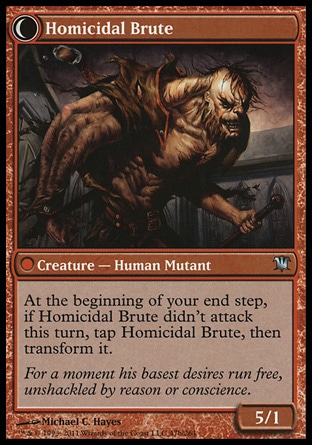
The back face of a double-faced card doesn't have a mana cost, but its mana value is derived from mana cost of day face.
Since the effect of Birthing Pod instructs us to search for a card with certain characteristic (mana value) in a hidden zone (library), we may search for one and... fail to find it. Even if one is actually there.
If we do find a card, it is put on the battlefield under our control (if nothing extraordinary prevents us from it, like Gather Specimens). All EtB-triggers go off and all abilities that modify the way a permanent enters the battlefield apply. Note that this creature isn't cast, so you may not pay additinal costs like Kicker, or benefit from abilities that trigger when spells are cast.
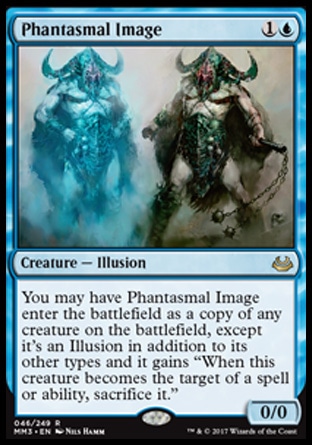
When Phantasmal Image enters the battlefield, you choose a creature to copy.
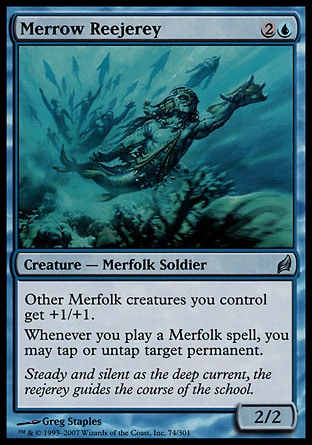
Merrow Reejerey won't help you tap or untap stuff because it wasn't cast.
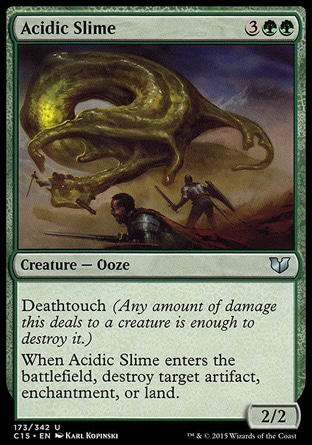
The trigger of Acidic Slime will go off, and after Birthing Pod's ability finishes resolving, it will go onto the stack.
After you finish searching, regardless of the result of this search, you must shuffle your library.
Fun facts:
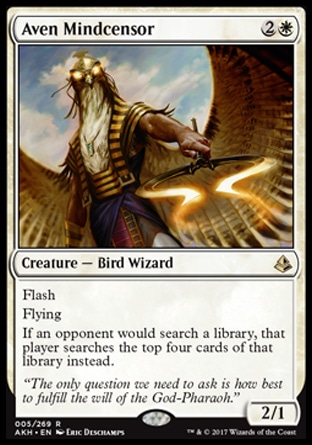
If, in resonse to your activating Birthing Pod's ability, the cunning opponent casts Aven Mindcensor and it succesfully enters the battlefield, you will only search the top four cards of your library. But you will still need to shuffle the entire library afterwards.
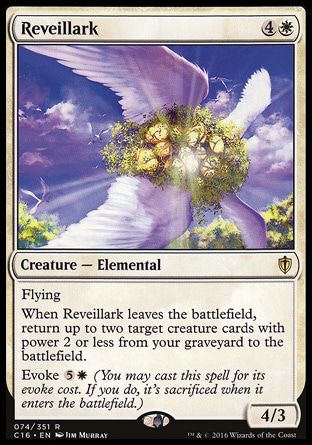
If you sacrifice Reveillark as payment for Birthing Pod's ability, its triggered ability will go off immediately, and it will be put onto the stack after you finish activating the Pod's ability. It will be above the latter on the stack, so it will resolve first.
Grafdigger's Cage negates the part of Birthing Pod's effect that puts the creature card on the battlefield. You may search for a creature, you must reveal the card if you find one, but it will remain in the library.
Translated by Witas Spasovski

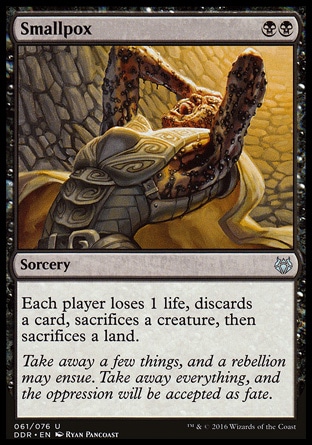
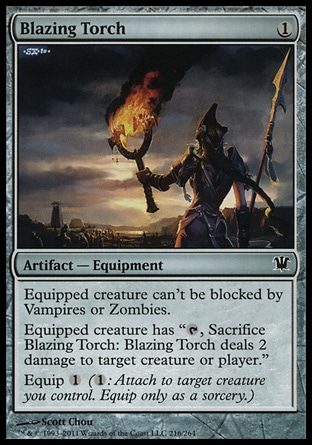
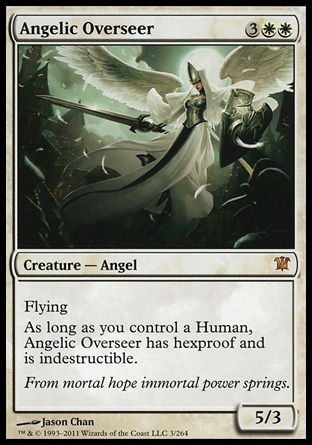
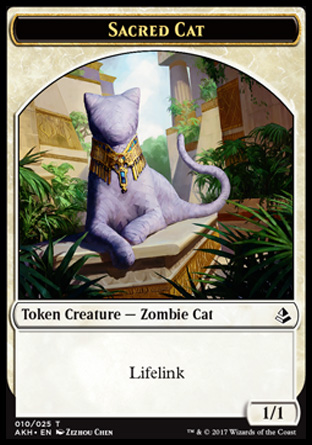
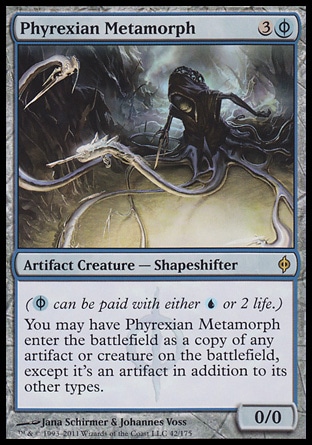
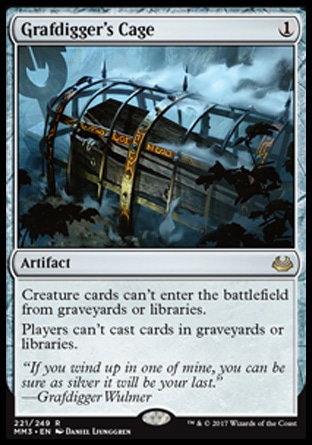
Act of Treason + Fling is a combo! Steal a creature with Act, attack with it, then sac it as additional cost for Fling.
Note that an object's owner and controller may be different players. When sacrificing a permanent, the controller matters, the owner is irrelevant. More details on this are available in the article “Everything under control”.